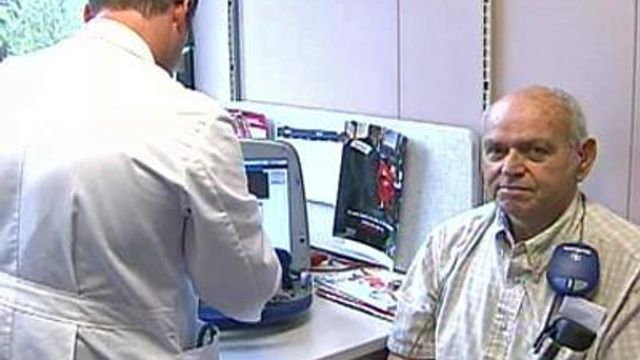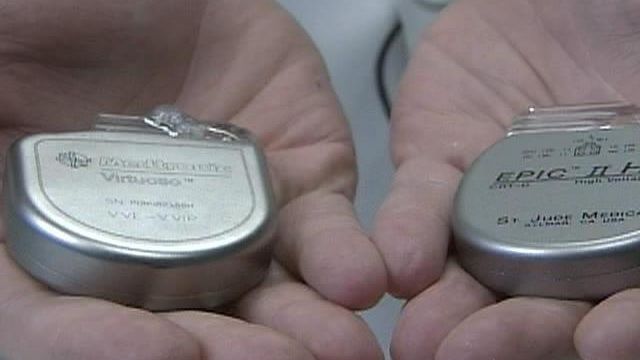ICDs Can Be Difference Between Life, Death
Preventing heart disease involves a healthy lifestyle including a healthy diet and regular exercise. But people presently at risk of heart attack may want to consider an implantable cardiac defibrillator (ICD).
Posted — UpdatedPreventing heart disease involves a healthy lifestyle including a healthy diet and regular exercise. But for people who are presently at risk of heart attack, they may want to consider an implantable cardiac defibrillator (ICD).
Charles Toler has been diagnosed with heart failure, which is a weakened heart. Six months ago, he got an ICD in case of a cardiac arrest.
Candidates are typically patients who have had a past heart attack or have weakened hearts for other reasons. Some people do not know they are at risk, but it could be revealed with a simple stress test and a measurement called an ejection fraction.
Health experts said if the low ejection fraction leads to a heart attack, ICDs deliver a potentially life-saving shock. Toler said he has not needed a shock yet, but he is glad the ICD is there if the occasion arises.
"It's a lifesaver to me," he said.
Many people are concerned about reports of ICD malfunctions. However, ICD technology is improving. Many models can now be monitored remotely, from places like the patients' own home, to make sure they are still functioning properly.
• Credits
Copyright 2024 by Capitol Broadcasting Company. All rights reserved. This material may not be published, broadcast, rewritten or redistributed.






